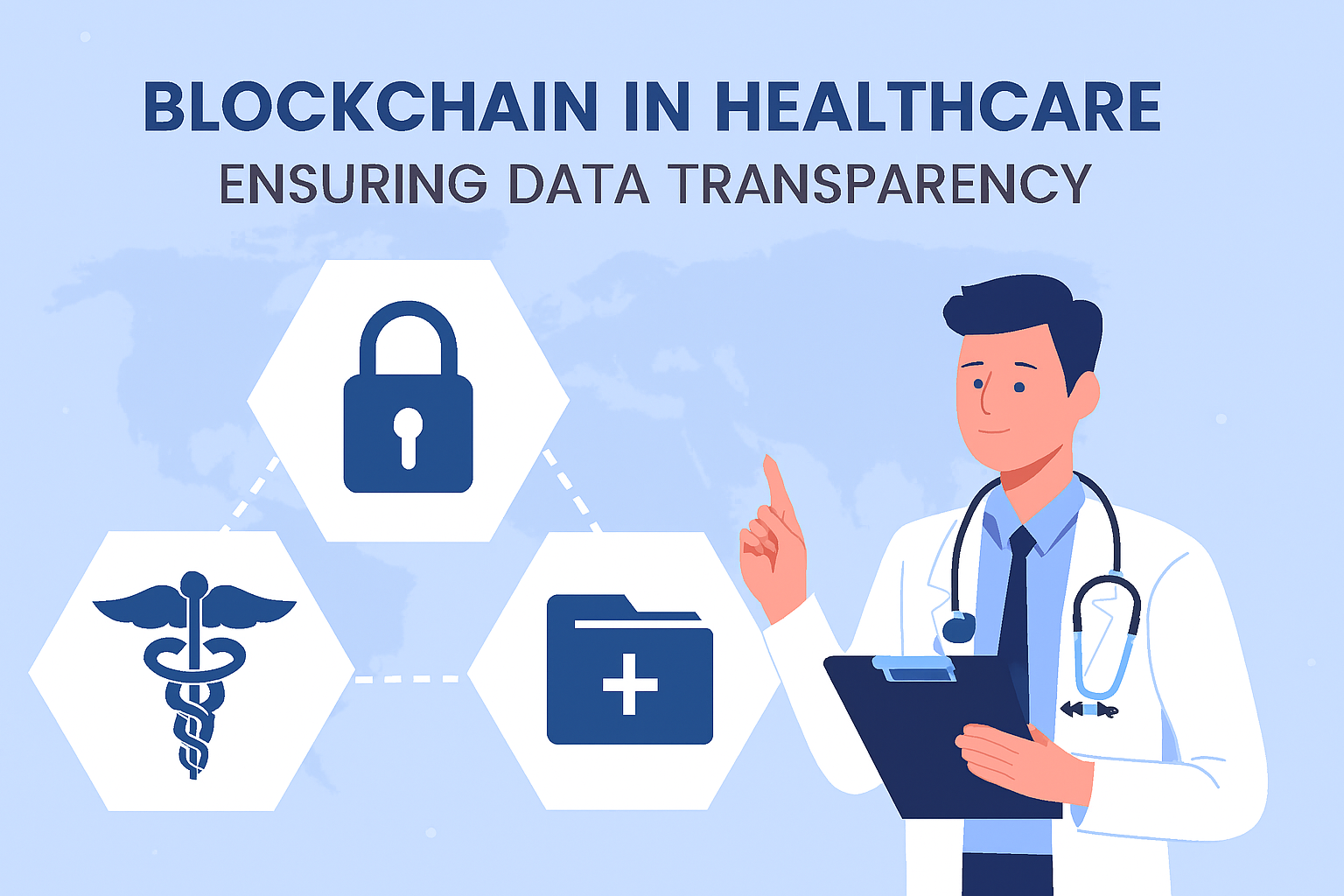
As data informs decisions, the healthcare sector is at a turning point. As patient privacy, data breaches, and disjointed medical records become growing concerns, the healthcare sector needs a secure, transparent, and interoperable system more than ever before. Enter blockchain—a technology previously only associated with cryptocurrency, now on the cusp of changing healthcare.
What Is Blockchain?
Blockchain is a digital, decentralized ledger that stores transactions on many computers. Every entry, or “block,” is connected to the last one, making a chain that is transparent and unchangeable. This format guarantees that data cannot be changed in the past without network approval, which makes it perfect for secure data such as medical histories.
Why Healthcare Needs Blockchain
Healthcare systems in the present times are beset with siloed data, interoperability issues, and security risks. Blockchain helps solve these problems:
Data Integrity: Transactions are timestamped and encrypted, making patient records accurate and unalterable.
Interoperability: Blockchain facilitates smooth data exchange among hospitals, laboratories, insurers, and patients—without jeopardizing privacy.
Security: Decentralized nature minimizes the threat of single-point failures and cyberattacks.
Patient Empowerment: Patients can dictate who has access to their information and monitor all interactions.
Blockchain Applications in Healthcare
Below are some revolutionary uses already in progress:
Electronic Health Records (EHRs): Blockchain has the potential to consolidate patient records across many providers into a single, secure record with patient-permissioned access.
Drug Traceability: From manufacturer to pharmacy, blockchain guarantees the authenticity of drugs, putting an end to counterfeit medications.
Clinical Trials: Transparent logging of data enhances confidence in trial outcomes and avoids tampering.
Billing and Claims: Smart contracts eliminate and confirm insurance claims, minimizing fraud and administrative expenses.
Examples in the Real World
Med Rec (MIT): An EHR management system based on blockchain, allowing patients to own their information.
Pharma Ledger (EU): A blockchain initiative by a consortium to enhance supply chain transparency and patient safety.
Burst IQ: Secure sharing of health data for analytics and research on a platform.
Challenges Ahead
For all its potential, blockchain in healthcare has challenges ahead:
Scalability: Processing huge volumes of data in real-time is still a technical challenge.
Regulatory Compliance: Ensuring that blockchain is compliant with HIPAA, GDPR, and other regulations needs thoughtful design.
Adoption Resistance Institutional resistance and old systems can hinder integration.
The Road Forward
Blockchain is no magic solution, but it’s a useful tool in the pursuit of data transparency. As healthcare becomes increasingly digitized, adopting blockchain could be the difference between disjointed care and an actually patient-focused system.
The future of healthcare isn’t just about curing disease—it’s about curing the system. And blockchain may be the prescription we need.